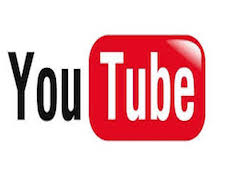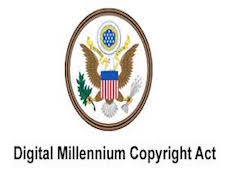It’s the time of year for saving money!
In case anyone might have missed, a contentious controversy regarding You Tube, which is owned by Google and their parent company Alphabet, Inc. is getting a lot of press of late. Notable stalwarts of the recording industry, along with growing numbers of artists, many of them highly recognizable if not legendary, have joined the chorus of those disenfranchised with financial compensation from You Tube. Not surprisingly, You Tube claims their compensation to artists is consistent with other free streaming services and they generate a substantial amount of revenue in the form of payouts to those artists.
 This whole issue is growing at an alarming rate. You Tube is basically claiming it is doing nothing wrong because of a 1998 law enacted by Congress called the Digital Millennium Copyright Act (DMCA). They are also claiming they are not infringing on existing copyright protection due to a provision of the law termed “Safe Harbor,” which essentially allows You Tube to accept music uploaded to it’s servers regardless of the source and stream that content unless specifically instructed by the artist to cease and desist.
This whole issue is growing at an alarming rate. You Tube is basically claiming it is doing nothing wrong because of a 1998 law enacted by Congress called the Digital Millennium Copyright Act (DMCA). They are also claiming they are not infringing on existing copyright protection due to a provision of the law termed “Safe Harbor,” which essentially allows You Tube to accept music uploaded to it’s servers regardless of the source and stream that content unless specifically instructed by the artist to cease and desist.
Those who don’t see fire in the water may want to look again. Companies with names such as Warner Music Group, Sony, BMG, Universal Music Group and even the RIAA have publically joined in their support against the DMCA. Along with these and other companies, dozens of artists including Sir Paul McCartney, Sir Elton John, Taylor Swift, Billy Joel and even Engelbert Humperdinck have also signed the reform petition. This list of companies and artists, companies in their own right, are, it seems, growing by leaps and bounds. This whole controversy boils down to how music created and copyrighted by an artist is used and how compensation for that use is proffered.
As an audiophile and for me personally, I have in the past, and on some certain level, only been tangentially interested in this controversy. I seldom, if ever, use You Tube as a means to listen to music. In fact, I can’t remember the last time I did so. Almost without exception, virtually all of the music I play on my audio system, especially for serious listening, is music I’ve purchased in the form of a CD, LP or download. I do, however, on occasion listen to streamed Internet radio in my office as background music.
 One of the main issues I have about any of the free streaming services, and especially as it relates to serious listening is, very simply, sonic quality. About the only one that I see having any measure of audiophile levels of quality, along with a wide range of content, and with easy access is, of course, Tidal. And I don’t even use them, at least not yet. Why? Simple, for my reference system, I prefer physical media to a streaming service. This is, needless to say, a choice I have made for myself and not a confirmation nor condemnation of any choices anyone else may make in their listening preferences.
One of the main issues I have about any of the free streaming services, and especially as it relates to serious listening is, very simply, sonic quality. About the only one that I see having any measure of audiophile levels of quality, along with a wide range of content, and with easy access is, of course, Tidal. And I don’t even use them, at least not yet. Why? Simple, for my reference system, I prefer physical media to a streaming service. This is, needless to say, a choice I have made for myself and not a confirmation nor condemnation of any choices anyone else may make in their listening preferences.
If I take a magazine from my neighbor’s mail box, read through it really quickly, then replace it in the mail box before they find out, have I broken any laws? Take it one step further – if I make a copy of that magazine before replacing it in my neighbor’s mailbox, have I then broken any laws? Go one step beyond that – if I make copies of my copy of the magazine and give them to my friends, have I then broken any laws? I’m confident a copyright attorney might think so. But the average shmoe who reads a purloined magazine? Perhaps not so much – which is likely what the average person listening to free music on You Tube probably thinks.
 Would it be fair to say that, in many ways, audiophiles are above the fray in all of this? From a high performance audio perspective, I liken this debate to the guy who dismisses the argument over which sub compact car is best because he goes everywhere in a limousine. Sort of taking the position of who cares? Am I, as an audiophile, directly impacted by the debate between recording companies, artists and You Tube because I choose to purchase the music to which I listen? In a larger sense, no, I’m probably not. In fact, I haven’t paid that much attention to the whole brouhaha at all.
Would it be fair to say that, in many ways, audiophiles are above the fray in all of this? From a high performance audio perspective, I liken this debate to the guy who dismisses the argument over which sub compact car is best because he goes everywhere in a limousine. Sort of taking the position of who cares? Am I, as an audiophile, directly impacted by the debate between recording companies, artists and You Tube because I choose to purchase the music to which I listen? In a larger sense, no, I’m probably not. In fact, I haven’t paid that much attention to the whole brouhaha at all.
Will this controversy have some lasting, or potentially future effect on how I am able to obtain music and the variety, width and breadth of music available to me as a consumer and an audiophile? Now that could potentially be a different story. Should any potential changes cause my level of interest be more than just “tangential?” Maybe so if those future changes alter the music ecosystem, and music available to me now is not so readily obtainable in the future after making changes to the DMCA.
 As an audiophile and one who loves listening to music, I see this as a controversy without a decisive and quick resolution. Despite wherever I might draw my own particular line in the sand, I am a very small fish in a very, very large pond. And by any rightful measure, I don’t even use You Tube for my music so the impact on my life is profoundly small. That said, a growing number of people who are legitimately pretty large fishes in a big pond do find fault with the status quo. Where all of this will shake out remains to be seen, and, as it were, heard. For my part, I’ll just ride along and watch what happens from the confines of my “limousine” and do what I’ve always done, pay little or no attention to You Tube.
As an audiophile and one who loves listening to music, I see this as a controversy without a decisive and quick resolution. Despite wherever I might draw my own particular line in the sand, I am a very small fish in a very, very large pond. And by any rightful measure, I don’t even use You Tube for my music so the impact on my life is profoundly small. That said, a growing number of people who are legitimately pretty large fishes in a big pond do find fault with the status quo. Where all of this will shake out remains to be seen, and, as it were, heard. For my part, I’ll just ride along and watch what happens from the confines of my “limousine” and do what I’ve always done, pay little or no attention to You Tube.






